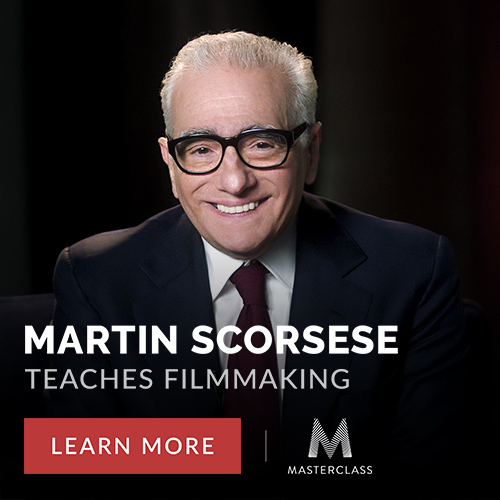Image by "Siebbi," Wikimedia Commons
Before the rise of institutional film schools—ensconced in university walls with all the formality that entails—those seeking to learn the craft did so by apprenticing themselves to studios and master directors, and by watching lots and lots of movies. If we take the example of some of the most interesting filmmakers working today, this still may be the best way to become a filmmaker. Werner Herzog’s Rogue Film School, for example, forgoes the trappings of classrooms for a much more rough-and-tumble approach—and a direct confrontation with the medium. Kevin Smith dropped out of film school, as did Paul Thomas Anderson, spurred on partly by a love of Terminator 2. “My filmmaking education,” revealed Anderson, “consisted of finding out what filmmakers I liked were watching, then seeing those films.” It’s more or less how Quentin Tarantino learned to make movies too.
You could hardly do better—if you’ve decided to take this independent route toward a cinematic education—than apprentice yourself under Martin Scorsese. Or at least find out what films he loves, and watch them all yourself.
Last year, we featured a list of 39 foreign films the estimable director of Taxi Driver, Raging Bull, Hugo, Goodfellas (etc., etc., etc.) recommended to a young filmmaker. Today, we bring you a list of 85 films Scorsese referenced in the course of a four-hour interview he gave to Fast Company. “Some of the movies he discussed,” writes FastCo, “Others he just mentioned. But the cumulative total reflects a life lived entirely within the confines of movie making.” Shoot on over to Fast Company to read Scorsese’s commentary on each of the films below, and see an aesthetically pleasing version of his list over at MUBI as well.
Like I said, you could hardly do better.
- Ace in the Hole
- All that Heaven Allows
- America, America
- An American in Paris
- Apocalypse Now
- Arsenic and Old Lace
- The Bad and the Beautiful
- The Band Wagon
- Born on the Fourth of July
- Cape Fear
- Cat People
- Caught
- Citizen Kane
- The Conversation
- Dial M for Murder
- Do the Right Thing
- Duel in the Sun
- The Four Horsemen of the Apocalypse
- Europa ’51
- Faces
- The Fall of the Roman Empire
- The Flowers of St. Francis
- Force of Evil
- Forty Guns
- Germany Year Zero
- Gilda
- The Godfather
- Gun Crazy
- Health
- Heaven’s Gate
- House of Wax
- How Green Was My Valley
- The Hustler
- I Walk Alone
- The Infernal Cakewalk
- It Happened One Nght
- Jason and the Argonauts
- Journey to Italy
- Julius Caesar
- Kansas City
- Kiss Me Deadly
- Klute
- La Terra Trema
- The Lady From Shanghai
- The Leopard
- Macbeth
- The Magic Box
- M*A*S*H
- A Matter of Life and Death
- McCabe & Mrs. Miller
- The Messiah
- Midnight Cowboy
- Mishima
- Deeds Goes to Town
- Smith Goes to Washington
- Nashville
- Night and the City
- One, Two, Three
- Othello
- Paisa
- Peeping Tom
- Pickup on South Street
- The Player
- The Power and the Glory
- Stagecoach
- Raw Deal
- The Red Shoes
- The Rise of Louis XIV
- The Roaring Twenties
- Rocco and his Brothers
- Rome, Open City
- Secrets of the Soul
- Senso
- Shadows
- Shock Corridor
- Some Came Running
- Stromboli
- Sullivan’s Travels
- Sweet Smell of Success
- Tales of Hoffman
- The Third Man
- T-Men
- Touch of Evil
- The Trial
- Two Weeks in Another Town
Note: An earlier version of this post appeared on our site in 2015.
Would you like to support the mission of Open Culture? Please consider making a donation to our site. It's hard to rely 100% on ads, and your contributions will help us continue providing the best free cultural and educational materials to learners everywhere.
Also consider following Open Culture on Facebook and Twitter and sharing intelligent media with your friends. Or sign up for our daily email and get a daily dose of Open Culture in your inbox.
Related Content:
Martin Scorsese Creates a List of 39 Essential Foreign Films for a Young Filmmaker
Martin Scorsese Reveals His 12 Favorite Movies (and Writes a New Essay on Film Preservation)
Quentin Tarantino Lists His Favorite Films Since 1992
Akira Kurosawa’s List of His 100 Favorite Movies
Josh Jones is a writer and musician based in Durham, NC. Follow him at @jdmagness
Martin Scorsese Makes a List of 85 Films Every Aspiring Filmmaker Needs to See is a post from: Open Culture. Follow us on Facebook, Twitter, and Google Plus, or get our Daily Email. And don't miss our big collections of Free Online Courses, Free Online Movies, Free eBooks, Free Audio Books, Free Foreign Language Lessons, and MOOCs.
from Open Culture https://ift.tt/2IdYcAC
via Ilumina


Comments
Post a Comment